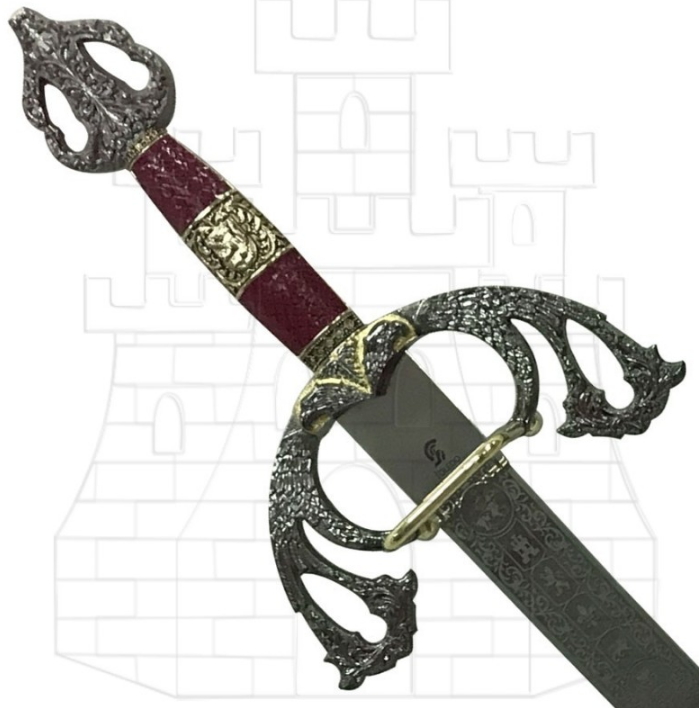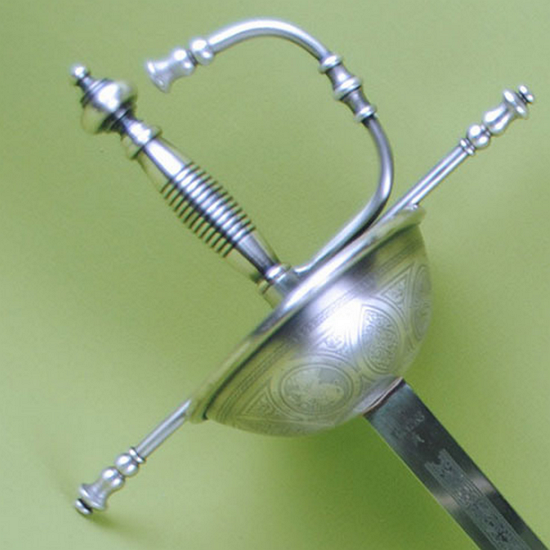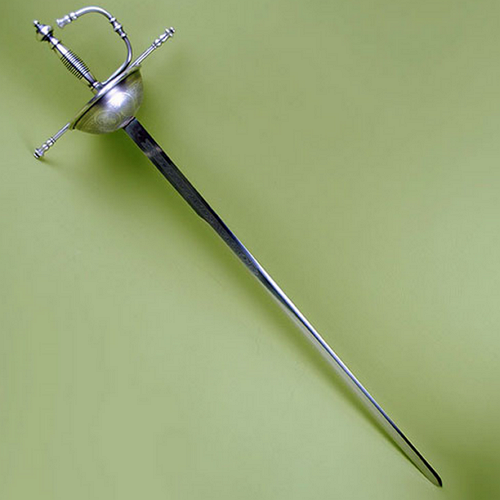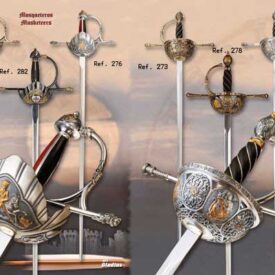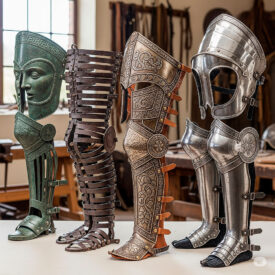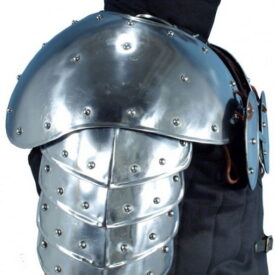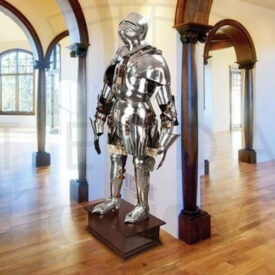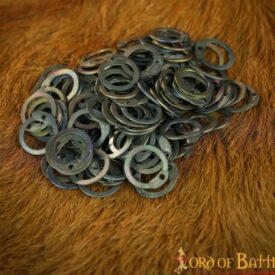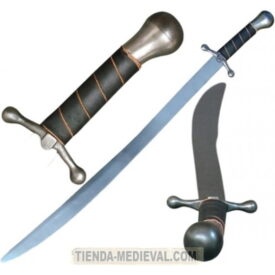During the fifteenth century chainmail is gradually replaced by plate armor, and swords, that their main strength was cut, are losing ground against the swords that are used only for thrusting. This leads to the appearance of different models of sword, with narrower blades and reinforced designed for the sole purpose of crossing the opponent’s armor. The rapier sword appears in the late fifteenth century in Italy, and its meaning was “Fency Sword”, being the ideal sword for civil protection of the propertied classes.
Rapier SwordThe first rapier swords that were created, served both to prick and to cut. With the passage of time, this type of sword evolved and improved, until the sixteenth century when it becomes a weapon that is handled with skill, replacing brute force. In countries like Italy and Spain, fencing was very successful. The great masters of fencing were Spanish and Italian teachers among which we find Carranza, Pacheco, Capo Ferro etc.
Cup Hilt Rapier
The most widely used swords came to measure up to 120 cm and were very ornate and stylized. In the late sixteenth and early seventeenth centuries in Spain appears the cup hilt as an improvement over the previous swept hilt, because the hand is better protected.
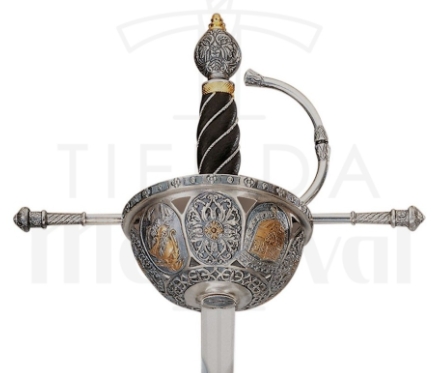
The Spanish cup rapiers increased rapidly, appearing new designs in which the cup was not just a plain piece of steel, but it had great quality prints, carved cups appeared, perforated or pierced forming intricate patterns and motifs, all according to the economic capacity of the owner.
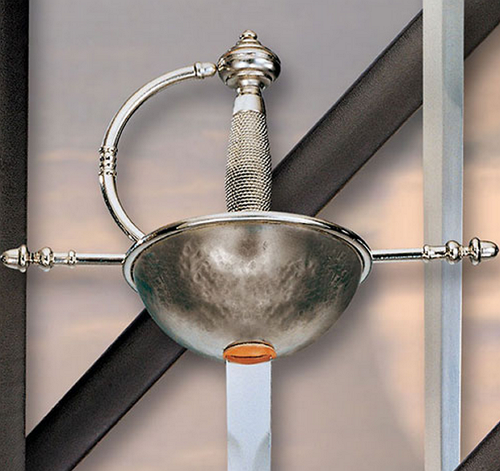
The Spanish Tizona, has a great success not only in Spain but also abroad. It’s easy to find blades made of Toledo steel and foreign cup style. During this period, there are also many fakes, many swords that have the seal of Toledo but are not.
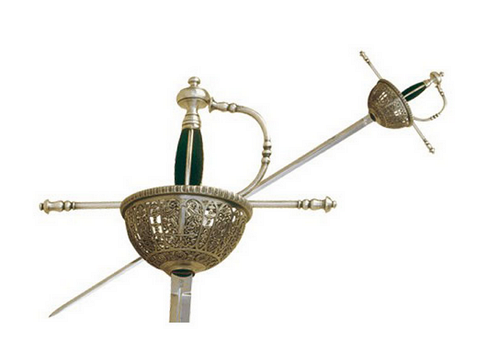
The decline of this sword, in Spain, is produced with the enthronement of Felipe V of Bourbon, who introduced French fashion. In Europe the Spanish Tizona with cup is replaced by the French foil, which is lighter and faster. But not completely extinguished, as they are manufactured tizonas Spanish in the first quarter of the nineteenth century and even some reports of British troops stationed in Spain during the War of Independence Spanish units mentioned armed with “swords rapiers cup”.
